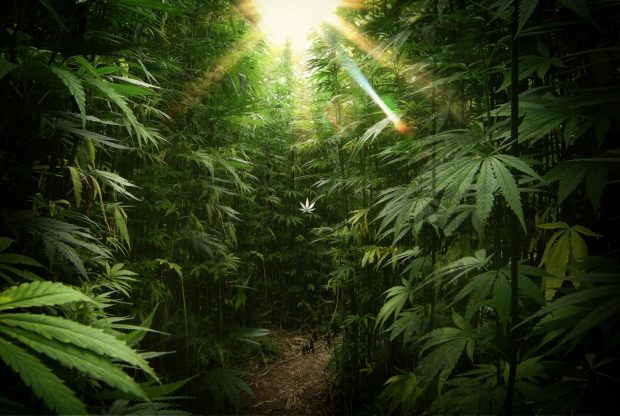By Bruce Mondragon and Marilyn Arredondo
History of Weed
Weed dates back to the early B.C. time period and had many other uses before it was used to get high. The plants medicinal use is said to be originated from Central Asia around 500B BC then later spread into Europe, Africa, and later on the Americas. Its use in America dates back to when the early colonists used the grown hemp for making “clothing, paper, sails and rope, and its seeds were used as food,” (History Channel). The earliest harvests of marijuana did not have high levels of THC until later when it was used for medicinal purposes. This began in the 1830s when Sir William Brooke O’Shaughnessy, an Irish doctor, discovered that his patients infected with cholera felt better after ingesting cannabis extract. The cannabis helped their ailing stomach pains and lessened their vomiting. By the late 1800’s they had cannabis extracts in shops all over Europe and America to help with stomach problems and other issues (History Channel). Once it was realized that THC was the factor that caused marijuana to have its medical properties, more research was conducted.
What is THC and how does it affect you?
THC or Tetrahydrocannabinol works like a cannabinoid chemical made naturally by the body. Cannabinoid receptors are concentrated in certain areas of the brain associated with thinking, memory, pleasure, coordination and time perception. THC attaches to these receptors, activates them, and then affects the brain’s functions. Like many drugs, Marijuana also stimulates cells in the brain which release dopamine, however, it also interferes with the hippocampus which results in a wacky memory.

Why weed makes you hungry?
Potheads and doctors have known for a while that smoking weed increases one’s appetite. Science finally gave the munchies its stamp of approval last year, when a study from Yale University discovered that marijuana tricks the brain by increasing the production of cannabinoids and lipids which stimulates ones appetite, whether we’re full of food or not. Apart from tricking us into thinking we’re not full, THC also appears to increase our sensitivity to scents and flavors by using naturally occurring neural networks. This is pretty interesting because weed makes food smell stronger, taste stronger and just gives you a bigger appetite. This effect can prove useful to people suffering from bulimia or anorexia. With their eating disorder, cannabis can get people stricken with those diseases to eat more and potentially save their lives.

Weed Impacting Developing Minds
In the November 2016 elections, weed became legalized with Proposition 64. Proposition 64 allowed adults aged 21 years or older to possess and use marijuana for recreational purposes. While the age requirement to purchase it was 18+ before, it did come with the condition of paying a fee for a rec. A rec is basically your doctors permission to buy recreational weed in order to help you with a medical problem. Thanks to the exoneration of weed, taxes were placed on the the cultivation and on the retail price. Due to illegal marijuana production and the damage it has on our environment, weed was made legal in order to use the taxes on drug research, treatment, enforcement, health, and youth programs. With the legalization of weed, many benefits can come to fruition although there are also some concerns. One of which is the fact that weed may be more accessible to youths. And evidence is mounting that THC is not risk free. What is immature in teens is the endocannabinoid system. This system comprises the physiological mechanisms that respond to THC. That system is important for cognition, neurodevelopment, stress response and emotional control, and it helps to modulate other major neurotransmitter systems. Repeated exposure to marijuana can dial down cellular activity in the endocannabinoid system. This is a big problem for young developing brains.
Read more: https://www.smithsonianmag.com/science-nature/scientific-explanation-how-marijuana-causes-munchies-180949660/#OvF7vzt48RflcBSd.99



































